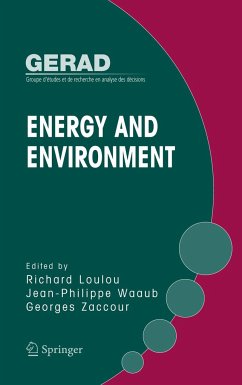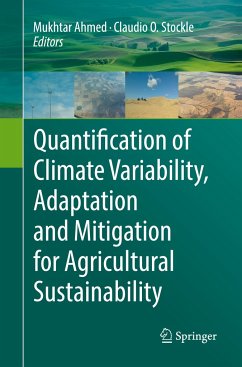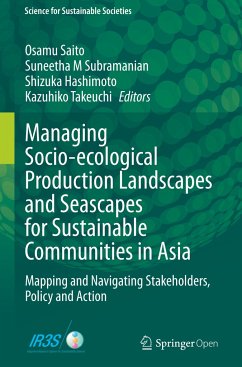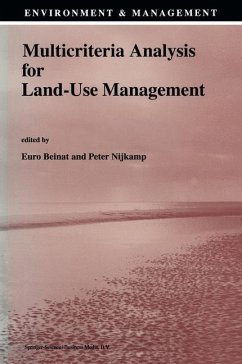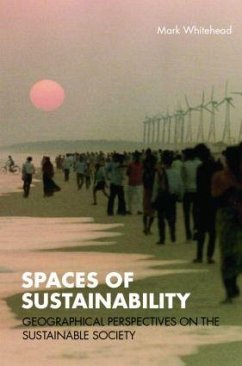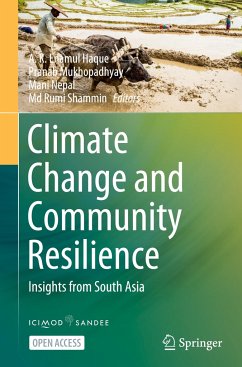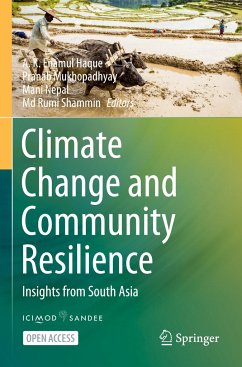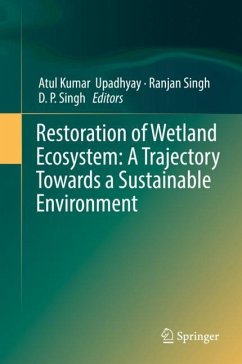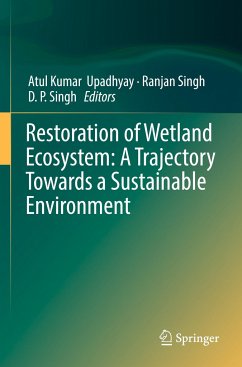
Aligning Climate Change and Sustainable Development Policies in Asia

PAYBACK Punkte
53 °P sammeln!
This book provides policymakers, researchers, and other interested audiences with knowledge on how to quantify and integrate and advance co-benefits in their decisions. It begins with an introductory chapter that provides an overview of the concept of co-benefits. This followed by a section that details quantitative approaches to estimate co-benefits, particularly in cities. A third section presents a series of case studies from the energy sector in Northeast and Southeast Asia. A final section focuses on new perspectives on co-benefits from linking climate change with biodiversity, social jus...
This book provides policymakers, researchers, and other interested audiences with knowledge on how to quantify and integrate and advance co-benefits in their decisions. It begins with an introductory chapter that provides an overview of the concept of co-benefits. This followed by a section that details quantitative approaches to estimate co-benefits, particularly in cities. A third section presents a series of case studies from the energy sector in Northeast and Southeast Asia. A final section focuses on new perspectives on co-benefits from linking climate change with biodiversity, social justice, and through new models of co-innovation. The book is particularly timely as many countries in Asia seek to achieve objectives in the national climate policies and the Sustainable Development Goals (SDGs).
The climate emergency poses an increasingly severe threat to the health and well-being of more than a billion people in Asia. Policymakers in the region have sought to curbthisthreat by adopting clean energy, energy efficiency, and other sectoral policies. In some cases, these policies can bring additional benefits beyond mitigating climate change. These so-called "co-benefits" --ranging from improved air quality to better health to socioeconomic equity--could not only offset the costs of climate mitigation but also make Asia's development more sustainable. Yet all too frequently policymakers lack the analytical methods and practical experiences to incorporate co-benefits into their decisions. This has created difficulties in aligning climate and sustainable development policies in Asia.
The climate emergency poses an increasingly severe threat to the health and well-being of more than a billion people in Asia. Policymakers in the region have sought to curbthisthreat by adopting clean energy, energy efficiency, and other sectoral policies. In some cases, these policies can bring additional benefits beyond mitigating climate change. These so-called "co-benefits" --ranging from improved air quality to better health to socioeconomic equity--could not only offset the costs of climate mitigation but also make Asia's development more sustainable. Yet all too frequently policymakers lack the analytical methods and practical experiences to incorporate co-benefits into their decisions. This has created difficulties in aligning climate and sustainable development policies in Asia.





